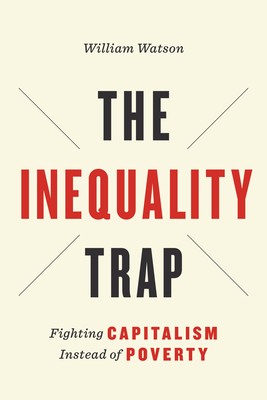
- We will send in 10–14 business days.
- Author: William Watson
- Publisher: University of Toronto Press
- ISBN-10: 1442637242
- ISBN-13: 9781442637245
- Format: 16 x 23.4 x 2 cm, kieti viršeliai
- Language: English
- SAVE -10% with code: EXTRA
Reviews
Description
US President Barack Obama has called economic inequality the "defining issue of our time." It has inspired the "Occupy" movements, made a French economist into a global celebrity, and given us a new expression - the "one percent." But is our preoccupation with inequality really justified? Or wise?
In his new book, William Watson argues that focusing on inequality is both an error and a trap. It is an error because much inequality is "good," the reward for thrift, industry, and invention. It is a trap because it leads us to fixate on the top end of the income distribution, rather than on those at the bottom who need help most. In fact, if we respond to growing inequality by fighting capitalism rather than poverty, we may end up both poorer and less equal.
Explaining the complexities of modern economics in a clear, accessible style, The Inequality Trap is the must-read rejoinder to the idea that fighting inequality should be our top policy priority.
EXTRA 10 % discount with code: EXTRA
The promotion ends in 21d.23:34:43
The discount code is valid when purchasing from 10 €. Discounts do not stack.
- Author: William Watson
- Publisher: University of Toronto Press
- ISBN-10: 1442637242
- ISBN-13: 9781442637245
- Format: 16 x 23.4 x 2 cm, kieti viršeliai
- Language: English English
US President Barack Obama has called economic inequality the "defining issue of our time." It has inspired the "Occupy" movements, made a French economist into a global celebrity, and given us a new expression - the "one percent." But is our preoccupation with inequality really justified? Or wise?
In his new book, William Watson argues that focusing on inequality is both an error and a trap. It is an error because much inequality is "good," the reward for thrift, industry, and invention. It is a trap because it leads us to fixate on the top end of the income distribution, rather than on those at the bottom who need help most. In fact, if we respond to growing inequality by fighting capitalism rather than poverty, we may end up both poorer and less equal.
Explaining the complexities of modern economics in a clear, accessible style, The Inequality Trap is the must-read rejoinder to the idea that fighting inequality should be our top policy priority.


Reviews